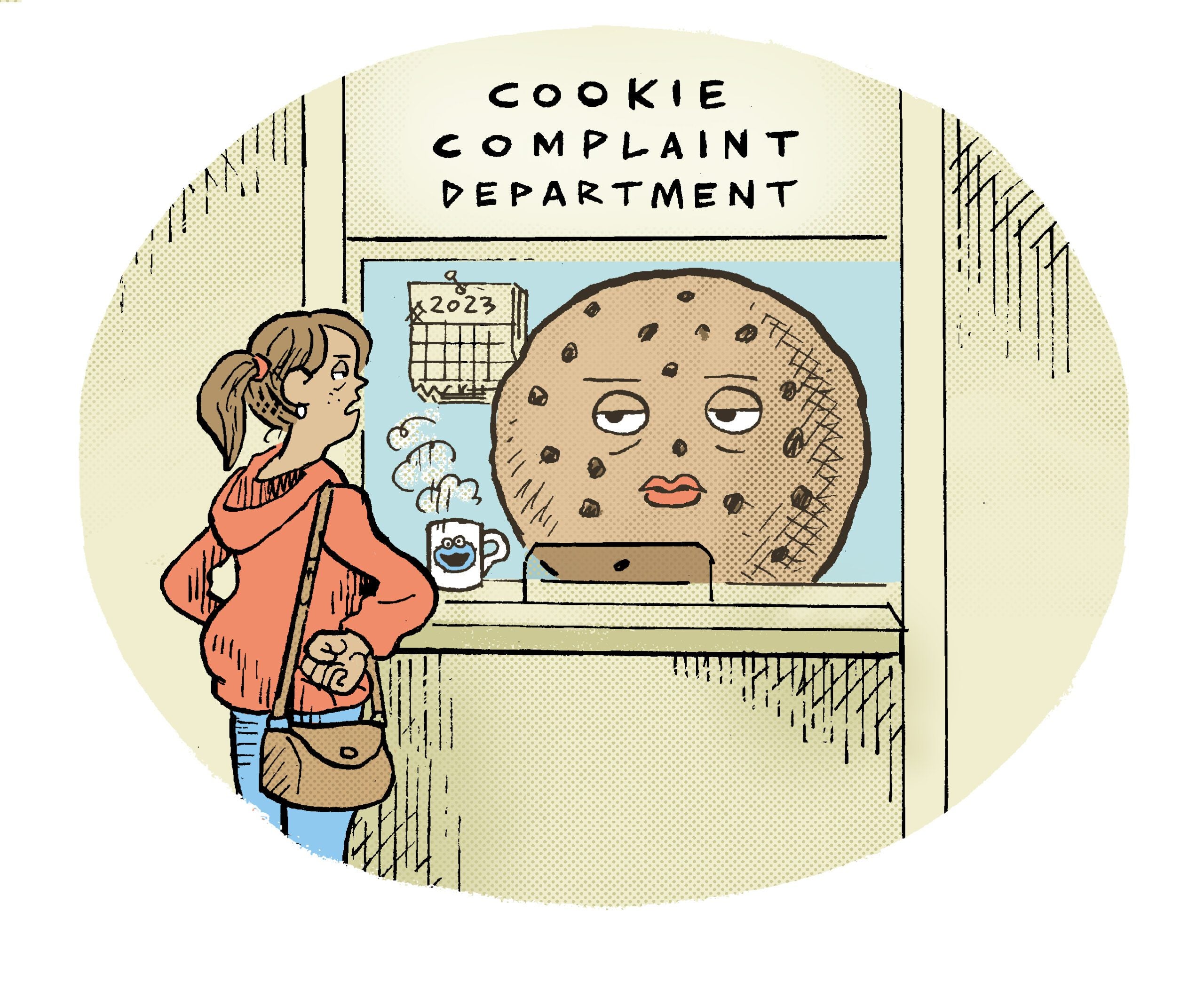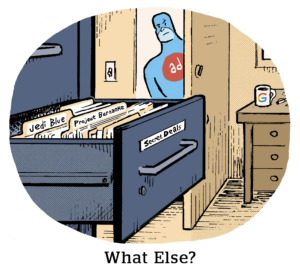Apologies for not putting more of a disclaimer on that headline, and further apologies to anyone who spit their coffee out onto their laptop.
But you read it right: Google is seriously considering plans to scrap third-party cookie deprecation in Chrome.
Instead, Google is proposing some kind of TBD opt-out tool for third-party cookies.
Google “would introduce a new experience in Chrome that lets people make an informed choice that applies across their web browsing, and they’d be able to adjust that choice at any time,” according to a blog post on Monday by Anthony Chavez, VP of the Privacy Sandbox.
Weapon of choice
If you’ve recovered from choking on your coffee, a few important questions have probably popped to mind, namely: What would this “new experience” look like and what would it mean for the Privacy Sandbox?
In answer to the first question, the details are very hazy, as in, nonexistent.
It’s not clear what the experience would look like, how Chrome users would be presented with the new interface or how it would work.
All that Chavez says in the post is that Google is “proposing an updated approach that elevates user choice,” which kind of makes it sound like the plan is to more clearly surface the existing privacy controls in Chrome. There’s already the option (a little buried in the Chrome browser settings) for users to disable third-party cookies.
According to Chavez, Google is “discussing this new path with regulators” and plans to “engage with the industry as we roll this out.”
The Sandbox stands
Which leads to the second question: What’s the future of the Privacy Sandbox?
The Sandbox is not going anywhere.
Google said it will continue making the APIs available and investing in them alongside the proposed user choice mechanism and other privacy controls. For example, Google plans to introduce IP Protection into Chrome’s Incognito mode. (IP Protection, which is similar to Apple’s Private Relay, blocks websites from tracking a user’s IP address.)
In other words, when the Privacy Sandbox is fully released, it would be forced to compete on its merits against all of the other tools in the ad tech vendor ecosystem, since vendors would still have access to third-party cookies tied to users who haven’t opted out.
Only time will tell
Having by this point probably brewed yourself a fresh cup, you may be leaning back in your chair wondering: So, when is this going to happen?
Good. Question.
There is no timeline in the blog post, and it’s unclear whether the proposed user choice tool would roll out early next year, which, after all, is when Google had planned to finally deprecate third-party cookies in Chrome (after three delays).
It’s also unclear whether the UK’s Competition and Markets Authority will still have oversight over the further development of the Chrome Privacy Sandbox APIs. The CMA’s main concern to date has been that the deprecation of third-party cookies in Chrome would give Google an unfair advantage, including via the Privacy Sandbox. But what if third-party cookies aren’t going away?
What is clear, however, is that four years (!!) of feedback from the industry and regulators has done its job to reshape Google’s product road map.
 Early testing of the APIs by ad tech companies indicates that the Sandbox APIs have potential, Chavez wrote. But Google recognizes that the “transition” to better performance and industry adoption “requires significant work by many participants and will have an impact on publishers, advertisers and everyone involved in online advertising.”
Early testing of the APIs by ad tech companies indicates that the Sandbox APIs have potential, Chavez wrote. But Google recognizes that the “transition” to better performance and industry adoption “requires significant work by many participants and will have an impact on publishers, advertisers and everyone involved in online advertising.”
This is a test
Everyone involved in online advertising, including Google, has been testing the Privacy Sandbox APIs.
On Monday, in addition to Chrome dropping its just-kidding-about-cookie-deprecation bombshell, Google Ads released the results of its latest Privacy Sandbox experiments, conducted during the first quarter.
Google Ads looked at three groups: a baseline of users where all signals, including third-party cookies, were available; a group where no third-party cookies or Privacy Sandbox APIs were present; and a cohort with no third-party cookies but the Sandbox APIs turned on.
Based on its tests, Google Ads was able to recover 86% of advertiser spend in DV360 and 89% for Google Display Ads.
Meanwhile, publishers saw a 34% programmatic revenue hit on Google Ad Manager when third-party cookies were disabled without enabling Privacy Sandbox and only a 20% hit when the Sandbox was switched on. In other words, Ad Manager was able to recover 80% of programmatic revenue when using the Privacy Sandbox.
These findings, however, differ vastly from others, including those recently released by Criteo – an early and devoted Chrome Privacy Sandbox tester – which noted a 60% average dip in publisher revenue without third-party cookies.
Criteo also noted that, based on its testing, Google Ad Manager captured the majority of ad spend against Criteo’s treatment group, which suggests that the Privacy Sandbox would boost GAM’s market share from 23% to 83%.




















